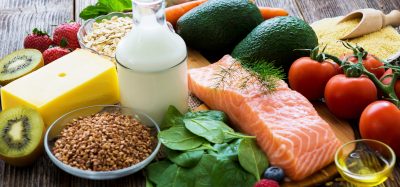Harmful practices of the confectionery industry
- Like
- Digg
- Del
- Tumblr
- VKontakte
- Buffer
- Love This
- Odnoklassniki
- Meneame
- Blogger
- Amazon
- Yahoo Mail
- Gmail
- AOL
- Newsvine
- HackerNews
- Evernote
- MySpace
- Mail.ru
- Viadeo
- Line
- Comments
- Yummly
- SMS
- Viber
- Telegram
- Subscribe
- Skype
- Facebook Messenger
- Kakao
- LiveJournal
- Yammer
- Edgar
- Fintel
- Mix
- Instapaper
- Copy Link
Posted: 21 November 2019 | Sameer Vaswani | No comments yet
With over 20 years experience in the food and confectionery industry, entrepreneur Sameer Vaswani reflects on his experiences and looks at the detrimental effects refined sugar can have.


Just like in many developed countries, sugar consumption in the UK is way too high. ‘In Britain, adults consume approximately double, and in the US, triple, the recommended level of added sugar for additional health benefits (5 percent of energy intake), with sweet foods and drinks contributing three-quarters of the intake.’1 For many children, the first bit of nutrition into their bodies to start the day is a bowl of sugary cereal and this is a tragedy. Obesity and diabetes are of course a huge problem with sugar, but it is also about polluting the body with toxic ingredients, and fueling the energy the body needs with empty calories and nutritionally void carbohydrates.
For many children, the first bit of nutrition into their bodies to start the day is a bowl of sugary cereal and this is a tragedy
‘Studies show that having too much sugar can cause multiple health implications, such as cardiovascular diseases.’2 Refined sugar is so prominent in the western diet, with sugar being added to a large majority of processed food that we eat; fruit juices, smoothies, sauces and yoghurts. Refined sugar has no nutritional value and is ultimately empty calories. ‘Liquid sugar, such as sodas, energy drinks and sports drinks, is the leading single source of added sugar in the American diet.’3 With such food being so readily available to us, it has quickly become a staple part of western fast paced life and diet – in many cases unbeknownst to us as most of the sugar is hidden.
An unrefined sugar is a naturally occurring sugar that has been delivered by mother nature. The sugar is natural and has been untouched without having gone through multiple processes before being consumed. It has a completely different journey from source to table, compared to refined sugars. Honey from bees is the best example, maple Syrup from trees, coconut sugar from the sap of a coconut/palm tree, fructose inherent in fruits and agave from plants. Unrefined sugar is a natural sugar and can hold many natural nutrients, but most importantly is not toxic to the body.
Lots of brands still market themselves as better alternatives by using gimmicks such as “single origin” or “organic” or “Carb Killa” – but still using refined sugars, glucose syrup, or highly processed proteins. The worst is “sugar free” – replacing white sugar with artificial, highly processed sweeteners, or polyols and sugar alcohols is hardly the answer!
I have witnessed firsthand the negative environmental impact of industrial food production. In a bid to make packaged foods as cheap as possible and accessible to the masses, companies have to source “ingredients” from all over the world without much consideration for their carbon footprint. International shipping and logistics, whilst beneficial for economies, is terrible for the planet. Again, with the motivation of producing cheap snacks/foods, the “ingredients” being sourced are nothing but harmful, and highly processed materials that are toxic for the body and have very little nutritional benefit. In order to produce affordable convenience foods, you need large scale factories to “process” and produce the food – I do not have a problem with that – it is the highly processed ingredients being used that are the problem.
I have worked in the food industry my whole career. Nutrition and a healthy diet with freshly prepared food was a cornerstone of my upbringing – hence why I became a chef. I did not grow up on packaged and processed foods that you ‘cook’ in the microwave. I was fortunate to have that core value instilled in me that fresh ingredients are better for the body. Then having built my own food factories and experienced industrial food production, when I became a father to my two girls, I just could not allow them to put these pollutants into their bodies. We all live in the developed world, where our fast-paced lives need convenience foods as not everyone has the time to cook fresh food. I believe that convenience food does not have to be bad for you. With natural nutritional ingredients, the way food should be, there is absolutely no reason why we cannot have packaged snacks that are, in fact, good for you. That is why I started my company Prodigy Snacks, as I want to show people that we can enjoy convenience food and snacks, and that they do not have to be packed with refined sugars or highly processed ingredients.
Having witnessed the large-scale manufacturing of refined sugar, the method of production in many sugar refineries to me, is diabolical. Sugar starts out as a plant, then becomes black gooey molasses, then ends up as white crystal powder. As if refined white sugar is not cheap and toxic enough, big confectionery brands go one step further and use even more toxic and cheap “sweetening” ingredients like high fructose corn syrup and glucose syrup – these ingredients are totally synthetic and harmful to our bodies.
Sugar starts out as a plant, then becomes black gooey molasses, then ends up as white crystal powder
Chocolate should be made with cacao butter as the fat of choice. Again, to drive costs down, big brands substitute cacao butter and use palm oil instead. To make a cheap “buttery” shortbread biscuit, no butter is used, but synthetic artificial butter flavours! To make a gummy bear, industrial emulsifiers are used and artificial dyes/colours to make them look aesthetically pleasing. What is wrong with beetroot juice to make something red? Or Carrot juice to make something orange? The answer is that often companies opt for refined sugars as they are cheaper and they can tailor the flavours and colours to whatever they wish but forget the health and environmental implications the synthetic ingredients have.
For me, health and wellbeing are the driving force behind starting a new revolution of snacking and promoting healthier convenience foods. Whether my efforts are to change ingredients for health benefits or reducing environmental impacts, sustainability is always a considered element to my business’s ethos. The snacks that Prodigy produce are better for the planet with 100 percent compostable, plastic-free packaging made from plant-based materials. The packaging materials are therefore renewable as they start out as plants and end up back in the earth generating new plants. The only issue using these materials is that we currently lack the infrastructure to collect and treat these materials properly in terms of waste – no method of separately collecting compostable waste from homes, and industrially composting them.
However, in my opinion, even without these systems, using non plastic materials which ultimately decompose (either in months or a handful of years) is still a huge improvement versus using fossil-fuel produced plastics which remain in the environment for hundreds of years and then pollute our earth and oceans with micro plastics which then enter the food chain. Reinforcing the company’s ethos of being good for consumers, the planet and humanity, Prodigy proudly donates 5 percent of all profits to support Akshaya Patra, Friends of the Earth and Hope for Justice.
References
- https://www.ncbi.nlm.nih.gov/pmc/articles/PMC5532289/
- https://www.health.harvard.edu/heart-health/the-sweet-danger-of-sugar
- https://sugarscience.ucsf.edu/sugar-sweetened-beverages/#.XbVc2uf7R-U
About the author
Sameer Vaswani started his profession as a chef and his entrepreneurial career with Rain Restaurant – an Asian Fusion restaurant in Notting Hill in London (1998-2002). He then relocated to West Africa where he built the Haansbro business – a biscuit and confectionery business with its own factories. Having built this business over the next 14 years, he sold it to United Biscuits (UB) in the UK after bringing production of Mcvities Digestives and Hob Nobs into his factories.
After working with UB for two years, he exited the business totally and relocated back to London. After a short time searching for better treats for his kids, he realised a gap in the market for the same indulgent chocolate treats, but without the damage to our bodies or the planet. Sameer then founded Prodigy.
Related topics
Environment, Free From, Health & Nutrition, Ingredients, Packaging & Labelling, The consumer







